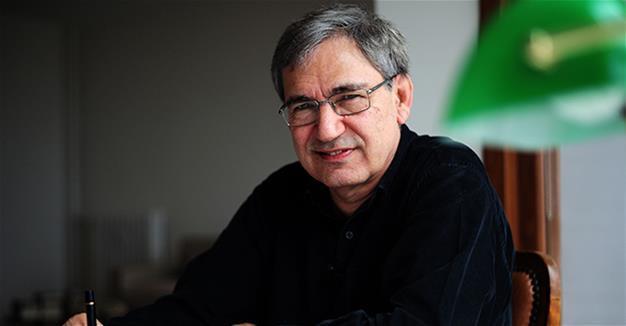Nobel laureate Orhan Pamuk says he is convinced Gülen network was behind coup attempt
ISTANBUL

AFP photo
Nobel laureate writer Orhan Pamuk has said he is convinced that the U.S.-based Islamic preacher Fethullah Gülen and members of his network were behind Turkey’s failed July 2016 coup attempt.“For two weeks I watched videos of the failed coup attempt. I was not convinced at the beginning that Gülen and his followers were behind it but now I am convinced, seeing how much they infiltrated the Turkish army, marginalized other soldiers, and carried out the attempt,” Pamuk said in an interview with the Nikkei Asian Review.
“However, I ask myself: How was it possible that they infiltrated the army? And who managed their ascent to the high ranks within the army? This is an immense [show of] insincerity as this group gained this power through the ruling party, and now that party is accusing everyone else of being [connected] with this group,” he added.
Pamuk said people “indirectly” laid claim to democracy on the night of the attempted takeover to defend the Justice and Development Party (AKP), President Recep Tayyip Erdoğan, and their right to vote.
The Nobel laureate also criticized arrests and dismissals in the wake of the failed coup attempt, describing the implementation as “unfair and inconvincible.”
“What is most insincere and unethical is putting journalists in jail, including ones writing books against [Gulen],” Pamuk said.
“For me, it started with the state of emergency and getting rid of two Constitutional Court judges. If you can get rid of the highest court, you can do anything. Now there is collaboration [between] the ultra-right and political Islam. Now right-wingers are in power they are trying to forget about the rule of law [and] constitutional courts. We do not have full democracy anymore. We have limited electoral democracy. There is no democracy without free speech and unfortunately free speech is very limited in Turkey,” he added.
Commenting on the April 16 referendum on constitutional amendments shifting Turkey to an executive presidential system, Pamuk noted that the campaign conditions were “unfair.”
The writer also said he respected German Chancellor Angela Merkel very much when Germany received a million refugees two years ago, while he is “proud” of Turkey and the government for hosting millions of refugees in the country.
“Populism is abusing immigration and killing the soul of Europe. Europe was founded on the French revolutionary slogans: Equality, liberty and fraternity. But seeing refugees in camps in poverty and misery and turning your back on them is not fraternity. There is no fraternity anymore and there is no Europe without fraternity,” he said.
Pamuk also stated that the EU had made mistakes in the past regarding Ankara’s accession process, naming Merkel and former French President Nicolas Sarkozy who “categorically did not want Turkey to join the bloc” despite Turkey “doing the best in its history to be part of the EU.”
Asked about the current state of affairs in Turkey, he said “secularism was losing ground but democracy was losing more ground,” in contrast with the early years of AKP rule.
















